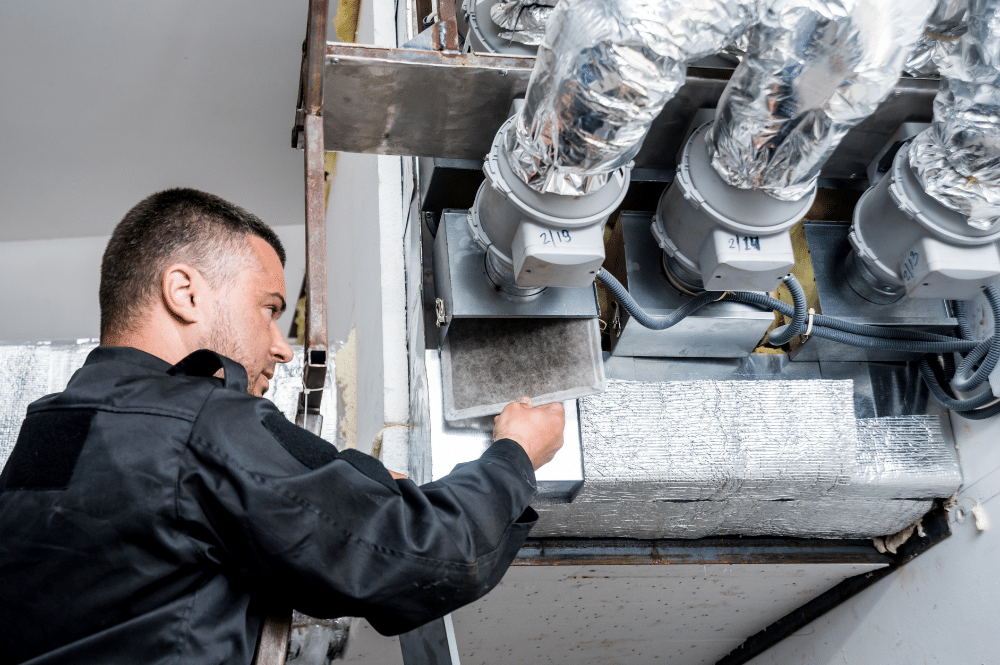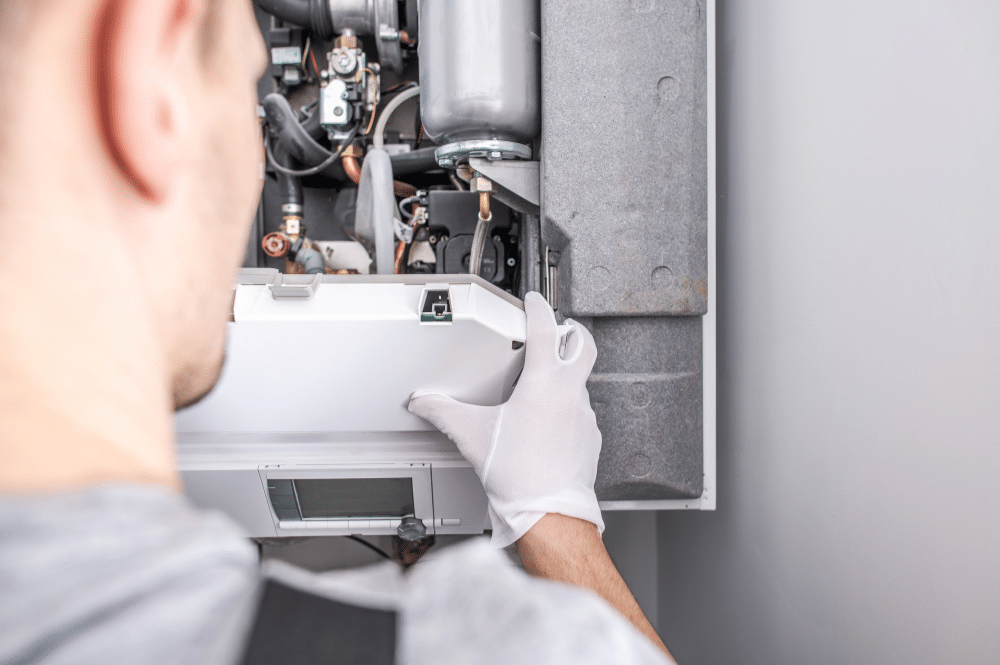HVAC system replacement can be one of the most significant investments a homeowner can make. It’s not only a significant investment in money but a huge investment of the homeowner’s time as well.
Read our guide to learn what to expect during the HVAC replacement process. You’ll soon see where you can make smart decisions about these systems that will enhance your home’s long-term comfort for you and those you love.
What To Expect During an HVAC Replacement
Preparing for HVAC replacement services means a lot more than moving furniture out of the way for the technician to start working. Read over the following checklist that homeowners should cover to get ready for this latest home improvement project.
Research Different Air Conditioning and Heating Systems On The Market
There are many different kinds of models for a cooling or heating system in today’s home appliance market. Familiarize yourself with these models so that you’ll know which system is right for you. You might also consult with an architect to gain their input on the right system for you as well.
Familiarize Yourself With Industry Terms/Abbreviations
You’re going to hear a lot of terms and abbreviations you’ve probably never heard before. Educating yourself in the correct HVAC terms is important. It might mean the difference between being comfortable and being miserable.
Brush up on these HVAC terms so that you are an informed participant in the project.
Terms you should learn include concepts of measurements (i.e., BTUs, CFMs.) You should also learn terms for individual equipment parts (i.e., HIPA filters, scroll compressors, or condensers.
Gather Multiple Cost Estimates
Once you know what system you want to be installed (and how to describe it), it’s time for you to collect an HVAC replacement cost estimate from many installers in the field.
HVAC installation in Texas should be left to professional contractors to complete. They are experts at cooling and heating system strategies that keep our homes comfortable.
Collect at least three different cost estimates from knowledgeable Texas HVAC installation professionals. Then you can learn about each contractor’s individual approach to your project and collect their input on which unit they think is best for you.
After you’ve reviewed each cost estimate, ask each contractor these questions:
- Which types of HVAC systems are your specialty?
- Do you have any customer feedback or reviews on your company’s performance?
- What were these customers saying about your suggestions for equipment?
- Do you want a deposit before you begin work?
- Do I pay the remainder of the project fee once the project is complete
- How long will my project take to complete?
A knowledgeable HVAC contractor will also ask to inspect your existing system before they submit their bids. They’ll also offer their advice on which systems will suit your home the best.
Research Contractors’ Background
Before you’re ready to hire a contractor, be sure to research what HVAC background and credentials technicians must have in your area.
HVAC technicians must have certain federal Section 608 Technician certifications before they can do business.
The US Environmental Protection Agency (EPA) regulates this certification process. The four EPA Section 608 certification categories that HVAC technicians must pass include:
- EPA Type I Certification – small appliance service
- EPA Type II Certification – high-pressure system service
- EPA Type III Certification – low-pressure system service
- Universal EPA Certificate- includes all three of the certification types listed above.
Technicians providing Texas HVAC services must have their contractor’s license. They get their license from the Texas Department of Licensing and Regulation.
HVAC contractors should also have their MC106.1 mechanical permit. A mechanical permit allows technicians to install new mechanical equipment.
This equipment can include residential and commercial HVAC systems. They are also qualified to install well kitchen hood exhaust systems as well. An HVAC technician can get their mechanical permit as part of their construction license or they can apply for it separately.
Technicians with their MC106.1 mechanical permit are familiar with the Uniform Mechanical Code (UMC.) The UMC is a model code that governs installing, inspecting and maintaining HVAC systems. The UMC is considered an American National Standard for mechanical expertise.
Contents In A HVAC Replacement Contract
Once you’ve chosen a bid for your HVAC project, it’s time to get your written agreement together. Don’t begin work until your contract is ready. Some basic contents that all HVAC installation contracts should have include:
- Specifications for materials installed, including warranties
- Warranty of craftsmanship
- Payment procedures
- Information on all applicable construction permits required
- How to handle change orders
Construction Permits
Your contractor will need to get any necessary construction permits. The local government requires certain permits before work can start. Construction permits highlight all safety standards for the project.
These standards can also safeguard your home from structure failures. They also protect you from any fire hazards that a new HVAC equipment might cause.
Project Area Preparation
Once you have scheduled your project’s start date and time, you can start preparing your home. For example, clear out the room where your new air conditioning unit will go. Remove pictures hanging from the wall. Make sure your small pets are out of the way while the work takes place.
When The Project Is Finished
When your project is complete, ask your contractor for their suggestions on ways to maintain your new HVAC unit. You can ask them how often should you request a professional inspection. Ask them if there are any repairs you might expect that you should look for in the future
Next Steps
Are you ready for your new HVAC system installation? Now that you know what to expect, you can start today.
Learn some of the HVAC terms and abbreviations in the industry today. That way you can speak confidently when you begin to interview HVAC professionals and efficiently explain what you need.
Once your contract and permits are finalized the project can begin. Be sure to check out our blog for more on the benefits of hiring an HVAC near me. Do what you can to keep your home at its comfortable best.




